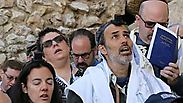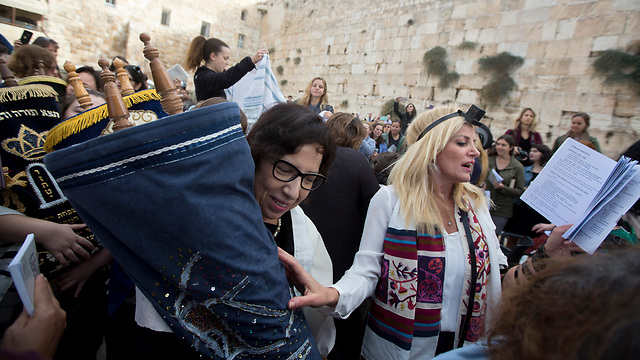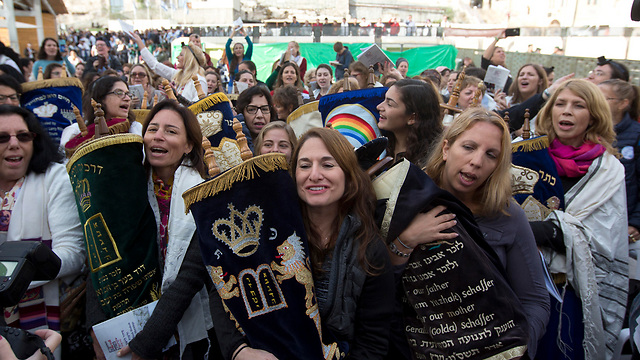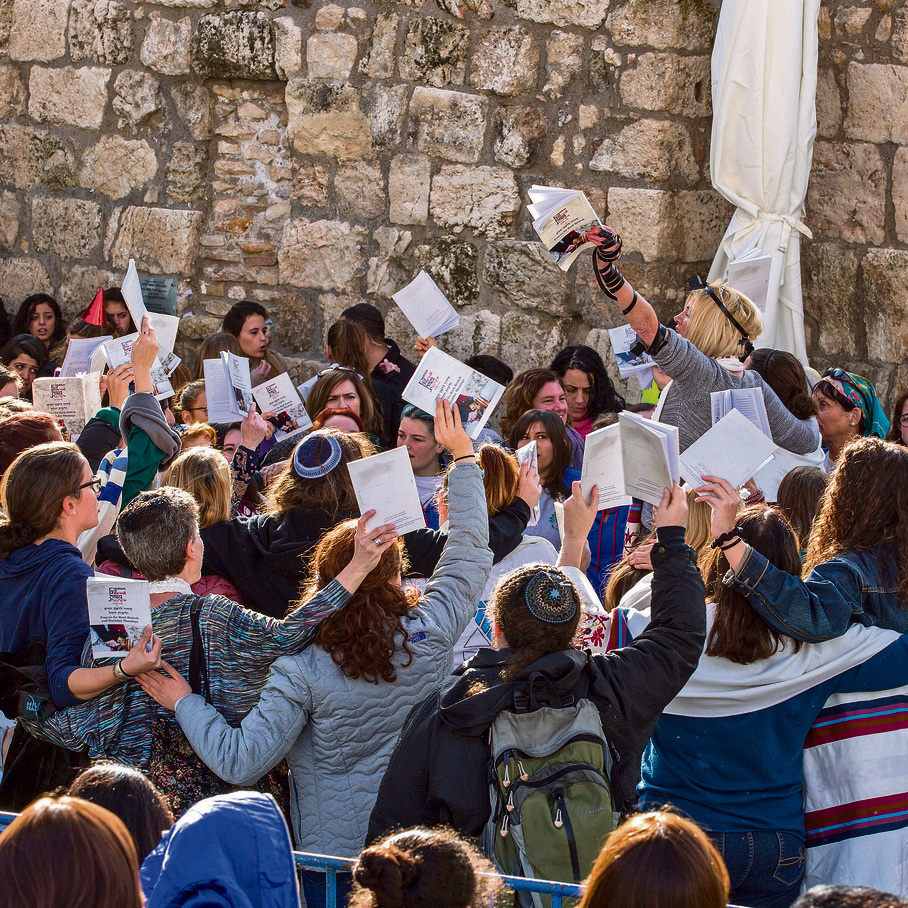
"The government ... continued to enforce a prohibition on non-Orthodox (including mixed gender) Jewish prayer services" at the Western Wall, the report noted. "The government and non-Orthodox activists reached a compromise in January to accommodate 'egalitarian prayer,' i.e., Reform and Conservative Jewish services, near the Western Wall, but the government did not implement it."
In regard to egalitarian prayer practices, the report expressed concern of the fact a district court ruling to allow the Women of the Wall group to read from the Torah at the Western Wall is not being implemented.
The report also noted the smaller size of the women's prayer area at the Western Wall. "The Rabbi of the Western Wall continued to set the guidelines for religious observance mandating separation of women and men, with the women’s section being less than half the size of the men’s section, and the government continued to enforce these rules," according to the report.
Furthermore, the State Department expressed concern of "reports of Haredi men spitting at non-Haredi Jews and persons of other faiths, including those wearing Christian clerical clothing," and questioned police decision not to provide security to non-Orthodox worshipers.
The plan to officially recognize a special mixed-gender prayer area at the Western Wall was reached in January 2016, after three years of intense negotiations between liberal Israeli and American Jewish groups and Israeli authorities. It was seen at the time as a significant breakthrough in promoting religious pluralism in Israel, where ultra-Orthodox authorities govern almost every facet of Jewish life.
The Western Wall, or Kotel, is the holiest site where Jews can pray, and its main plaza is divided into separate men's and women's prayer sections. Those attempting to hold egalitarian services in the area are often heckled and harassed.
Under the plan, the small egalitarian area would be expanded and receive a more central entrance alongside entrances to the current male and female prayer sites. The area would be managed by representatives of the three main movements in Judaism—Reform, Conservative and Orthodox—rather than just by the Orthodox as the existing prayer areas are.
But the program was never implemented, as powerful ultra-Orthodox members of the coalition government raised objections, leading the government to freeze the plan's implementation.
The about face, coupled with another government decision to promote a bill that would enshrine the ultra-Orthodox monopoly over conversions, provoked the ire of liberal Jews, with leaders of the Reform and Conservative movements canceling meetings with Prime Minister Benjamin Netanyahu in protest.
Most American Jews belong to the more liberal Reform and Conservative streams and feel alienated by Israel's ultra-Orthodox authorities, who question their faith and practices.
Tensions are expected to rise again on Wednesday, which marks the first day of the Hebrew month of Elul, when the Women of the Wall, alongside members of the Reform and Conservative movements, plan to arrive at the Western Wall and hold an egalitarian prayer service, including women reading from the Torah and blowing the shofar.
In addition, the High Court of Justice is due to rule next week on a petition against the government's decision to freeze the egalitarian prayer area plan.
"When we warned time and again that canceling the Kotel compromise plan would not be a minor event but rather cause strategic damage to the State of Israel, there were those who thought we were exaggerating. But now, one week after the next, we see how real and concrete this damage is," said Yizhar Hess, the executive director of the Conservative Movement in Israel.



















